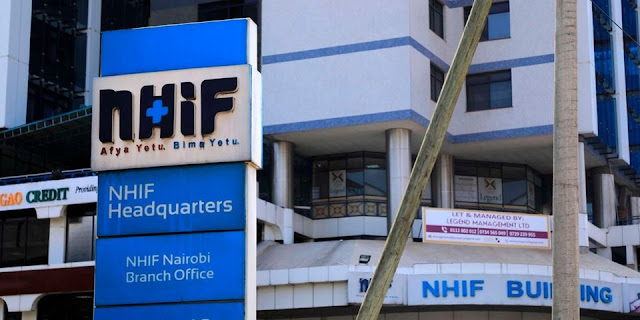Due to financial difficulties, 8.8 million National Health Insurance Fund (NHIF) members, who account for 43 percent of the fund’s membership, have failed to make their required monthly payments, thereby dooming them to pay for their own medical expenditures out of pocket.
The most recent NHIF statistics for the fiscal year that ended in June 2022 reveal that the number of inactive members reached 8.8 million, up from 5.03 million the year before. This meant that the insurance company didn’t reach its goal of getting Sh90.57 billion in premiums during the evaluation period.
Membership increased to 15.4 million from 13.94 million, although the number of people who were considered active remained at just 6.7 million and 5.3 million, respectively. The National Health Insurance Fund says that economic problems are to blame for the rise in late payments.
According to the National Health Insurance Fund (NHIF), which was quoted in a report on the health sector that was made public by the Treasury, “the objective was not achieved due to macro-economic factors in the country,” which led to companies closing their doors, laying off employees, and reducing salaries.
“The informal sector has also encountered economic pressures caused by the poor economic conditions,” which have made it difficult for members of the informal sector to make their additional contributions to the fund, resulting in unfavorable selection. “The informal sector has also faced challenges financially caused by the poor economic conditions.”
The National Hospital Insurance Fund (NHIF) receives Sh500 per month from voluntary donors, who are mostly recruited from the informal sector. The amount that employees in the formal sector give each month ranges from Sh150 to Sh1,700, depending on the wage scale.
Most of the time, registered members who haven’t paid their monthly premiums lose the right to use their insurance to pay for medical bills.
Defaulted premiums force members to pay out-of-pocket costs to clear the bills, and the NHIF requires them to pay off the arrears before they can make up for the lost coverage.
The fund gives people who have fallen behind on their payments a chance to join again by paying Sh1,500. However, they have to wait three months before they can use the protection.
NHIF’s annual premiums went down for the first time in the financial year that ended in June 2021. However, they went back up in the period under review, which showed that economic problems were getting better as the effects of COVID-19 continued to go away.
According to the fund, the total amount of premiums collected increased by 30 percent, going from 60.78 billion shillings in the fiscal year 2020–2021 to 78.84 billion shillings in the time under review.
On the other hand, the total amount of benefits given out increased by 45 percent, going from 49.04 billion to 71.34 billion.
The substantial increase in compensation was driven by an increase in hospital visits, in contrast to the previous time, when many individuals avoided hospitals out of fear of getting the dangerous COVID-19 virus. This anxiety caused the payouts to jump sharply.


